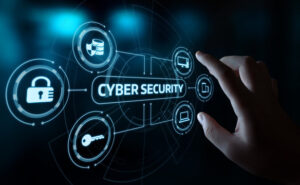Cyber security in the United States is more important than ever. Learn why it’s a growing threat and how businesses and individuals can protect themselves from cyber attacks.
Cyber Security in the United States: Why It’s a Major Threat Today
Cyber security in the United States is no longer just a tech issue—it is a national crisis. With the rise of digital technologies and remote work, the threat of cyber attacks has increased dramatically. From individuals to large corporations and even government agencies, everyone is at risk. In fact, cyber attacks are happening every day across the country, causing billions of dollars in damage and putting sensitive information in the wrong hands.
In this post, we’ll look at what cyber security really means, why it’s become such a serious threat in the U.S., and what you can do to protect yourself, your business, and your data.
What Is Cyber Security?
Cyber security refers to the practice of protecting computer systems, networks, and data from digital attacks. These attacks can come in many forms—viruses, phishing emails, ransomware, malware, and more. The goal of cyber criminals is to steal sensitive data, gain unauthorized access to systems, or disrupt services.
Cyber security involves a combination of technology, best practices, and user awareness. It is about building digital defenses to protect everything from your social media accounts to national infrastructure.
Why Cyber Security Is a Major Threat in the United States
The United States is one of the most digitally connected countries in the world. That makes it a top target for hackers. Here are a few reasons why cyber security in the United States has become a critical concern:
1. Increase in Cyber Attacks
The number of cyber attacks has skyrocketed in recent years. According to the FBI, cyber crime complaints rose by over 300% since 2020. Businesses, hospitals, schools, and even police departments have fallen victim to these attacks.
2. Ransomware Threats
Ransomware is one of the most dangerous types of cyber attacks. In a ransomware attack, hackers lock users out of their systems and demand payment to restore access. In 2021, the Colonial Pipeline—one of the largest fuel pipelines in the U.S.—was shut down due to a ransomware attack, causing fuel shortages in several states.
3. Targeting of Personal Information
Cyber criminals often steal personal data such as Social Security numbers, bank account details, and credit card information. This data is then sold on the dark web or used to commit identity theft.
4. Remote Work Vulnerabilities
The rise of remote work has created new opportunities for hackers. Many people now access work networks from home using unsecured Wi-Fi connections or personal devices that lack proper security software.
5. Critical Infrastructure at Risk
Hospitals, water systems, power grids, and government agencies are all vulnerable. Cyber attacks on these systems could cause widespread disruption and even endanger lives.
Who Is at Risk?
The short answer: everyone. Individuals, small businesses, large corporations, and government agencies are all potential targets. However, small businesses are often the most vulnerable because they may not have the resources to invest in strong cyber security.
Even individuals need to be cautious. Clicking a suspicious link or using the same password for every account can lead to serious problems. Cyber criminals are constantly looking for weak points, and they often rely on human error to gain access.
How to Protect Yourself and Your Business
The good news is that there are steps you can take to improve your cyber security. Whether you’re a business owner or just someone who uses the internet every day, here are a few tips:
-
Use Strong Passwords: Use complex passwords and avoid reusing them across multiple accounts. Consider using a password manager.
-
Enable Two-Factor Authentication: This adds an extra layer of protection to your accounts.
-
Update Software Regularly: Keep your operating systems, antivirus software, and apps up to date to patch security flaws.
-
Be Cautious with Emails: Avoid clicking on unknown links or downloading attachments from suspicious emails.
-
Back Up Your Data: Store copies of important files in a secure location, such as an external hard drive or cloud service.
-
Educate Employees: For businesses, train your staff to recognize phishing attempts and other cyber threats.
The Role of the Government and Private Sector
The U.S. government has recognized cyber security as a major threat and has taken steps to address it. Agencies like the Cybersecurity and Infrastructure Security Agency (CISA) help protect critical infrastructure. However, government efforts alone are not enough. Businesses and individuals must also take responsibility for their digital safety.
The private sector plays a crucial role by investing in advanced cyber security tools, hiring trained professionals, and collaborating with law enforcement when breaches occur.
Final Thoughts
Cyber security in the United States is a growing concern that affects us all. As technology advances, so do the tactics used by cyber criminals. Protecting your data and systems requires awareness, action, and vigilance. Whether you’re managing a business or just browsing the web, make cyber security a top priority.
Now is the time to take cyber threats seriously. Start by evaluating your current defenses, educating yourself and your team, and investing in the tools and practices that can keep your information safe.

